Want to be seen here?
Connect your company to the marketplace for free.
Time for a display campaign? Ocast has gathered thousands of solutions in one place so you can get started quickly. Fill in the form and start receiving offers for campaign proposals.

Berliner Zeitung bietet viele verschiedene Lösungen für Werbetreibende, die Anwohner in Berlin erreichen wollen....

Werben Sie mit der BZ Berlin, um Anwohner mit Interesse an Neuigkeiten, Informationen und Veranstaltungen zu erreichen....

Die Berliner Morgenpost ist eine deutsche Tageszeitung, die als regionale Morgenzeitung in Berlin erscheint. Das Magazin hat eine Auflage von 115.260 Exemplaren mit durchschnittlich rund 360.000 Leser...

Finden Sie die passenden Werbekanäle unter Deutsche Wirtschafts Nachrichten....
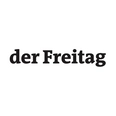
Der Freitag ist eine deutschsprachige Wochenzeitung, die im Raum Berlin erscheint....
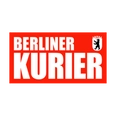
Werben Sie mit dem Berliner Kurier, der Neuigkeiten, Informationen, Unterhaltung und Veranstaltungen rund um Berlin teilt....

Werben Sie in der Deutschen Tageszeitung, die über die neuesten Nachrichten und Ereignisse der Welt informiert....

News38.de ist ein Nachrichtenportal, das über regionale Nachrichten berichtet....
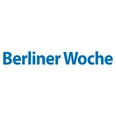
Die Berliner Woche ist die Lokalzeitung, deren Inhalte online und gedruckt gelesen werden können. Veröffentlicht auch Nachrichten über das Spandauer Volksblatt....
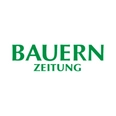
Die Bauernzeitung ist eine wöchentlich erscheinende Zeitschrift, die in fünf deutschen Bundesländern erscheint. Inhaltlich konzentriert sich das Magazin auf Themen wie Landwirtschaft, Nachhaltigkeit u...
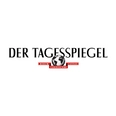
Der Tagesspiegel – die größte Zeitung der Hauptstadtregion – bietet vielfältige Möglichkeiten Anzeigen zu inserieren und lesen. Ob privat oder gewerblich, gedruckt oder digital, sämtliche Informatione...

Moin ist ein Nachrichtenportal, das über Neuigkeiten und Ereignisse in Norddeutschland und Hamburg berichtet....
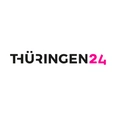
Thüringen24 ist ein Online-Nachrichtenportal und berichtet über aktuelle Nachrichten....
Werben sie mit Märkische Allgemeine, digital oder gedruckt....

Deutsche Welle, Germany’s international broadcaster, reaches 652 million TV households worldwide with TV channels in four languages. Our website dw.com is available in 32 languages and we reach more t...
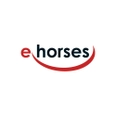
Since 1999, ehorses has grown from a startup to the largest horse market in the world. Use our reach - be it with an extensive display campaign, advertorials, product tests or your personal competitio...
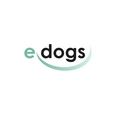
Our edogs team is characterized by a lot of passion and dog power. We have set ourselves the goal of bringing every dog lover together with the right four-legged friend - online, safely and easily! Sa...

Die Börsen-Zeitung ist eine Finanzzeitung mit Schwerpunkt auf Wirtschaftsnachrichten und -ereignissen....
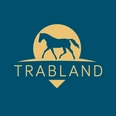
Trabland ist das digitale Tor zu Welt der Pferde!Das lebendige Internetportal bietet neben dem einzigartigen und vollständigen Branchenverzeichnis vor allem auch interessante und wissenswerte Themen f...
Display advertising, often referred to as banner advertising, involves visual ads placed on various websites, in contrast to text-based search ads that appear in search results on platforms like Google.
While search ads are focused on direct response, display ads aim at building brand awareness through engaging visual content like images or animations. Display advertising also enables retargeting, where ads are redirected to users who have previously visited your website, helping to keep the brand fresh in mind.
With opportunities to measure campaign performance and customize design and target audience, display advertising offers an attractive strategy for brands looking to enhance their online presence and effectively engage their target audiences.
The most effective formats and sizes for display ads vary depending on the platform and target audience, but here are some popular options:
Leaderboard (728x90 px): Positioned at the top of the page, this ad size captures visitors' attention right away.
Medium Rectangle (300x250 px): This size is flexible and can be placed in sidebars or embedded within content.
Large Rectangle (336x280 px): A larger variant of the Medium Rectangle that offers more visible space.
Wide Skyscraper (160x600 px): Often used in sidebars, offering a long, vertical ad space.
Mobile Leaderboard (320x50 px): Optimized for mobile devices and often placed at the top or bottom of the screen.
Consider adhering to industry standards and adapting ad format and size to the specific platform and your target audience. However, the emphasis should be on having well-thought-out content that engages and is relevant to your target audience with clear "Call to Actions" (CTA) to encourage clicks and conversions.
Measuring the effectiveness of your display advertising campaigns is crucial for evaluating the results of your campaign and for fine-tuning future marketing strategies. A first step could be to look over the Click-Through Rate (CTR), which represents the number of clicks your ad receives per view, providing an indication of the ad's engagement level. It is also important to track the conversion rate, which shows how many clicks are converted into desired actions such as sales or leads. Cost Per Conversion is another key indicator that helps you understand the cost-effectiveness of your campaign.
It may also be good to look at the impression rate, that is, how many times the ad has actually reached out and been displayed for brand-building purposes.
One of the major advantages of this type of advertising is its ability for audience targeting, where ads can be directed based on demographics, behavior, and retargeting, enabling a more personalized advertising experience. Moreover, with the use of various analytical tools, it becomes easy to track and measure the campaign's effectiveness by observing data on clicks, conversions, and views, which provides valuable insights.
However, display advertising also has its downsides. Ad blocking is one of the major challenges, where users can choose to block display ads, which in turn reduces the reach and effectiveness of your campaign. Ad fatigue is another downside, where ads that are shown too often can become irritating for the users, leading to decreased engagement and negative brand associations. Despite the ability for audience targeting, audience dilution can be a challenge if precise targeting is not used, which potentially leads to wasted marketing expenses. Additionally, the cost of display advertising can become significant, especially if the campaign is not well optimized to achieve desired results.
The cost of display advertising can vary based on several factors such as website, ad format, and target audience. Besides that, there are different pricing structures one can base on to adjust the cost according to the goal at hand. Below we list different pricing options for display advertising.
CPM (Cost Per Mille or Cost Per Thousand Impressions):
The price for 1000 views of your ad.
Often used for campaigns aimed at increasing brand awareness.
CPC (Cost Per Click):
The price you pay for each click your ad receives.
Used when the goal is to drive traffic to a website or increase interaction.
CPA (Cost Per Acquisition or Cost Per Action):
The price for each specific action or execution, such as a purchase or lead generation, that arises via your ad.
Used when the goal is conversions rather than just views or clicks.
CPL (Cost Per Lead):
The price for each lead generated through your ad.
Used in B2B marketing or for products/services with longer sales cycles.
CPV (Cost Per View):
The price for each viewing of a video ad.
Often used for video-based advertising campaigns.
Each pricing structure suits different goals and campaign types, and choosing the right pricing structure can help maximize the ROI for your display campaign.
Connect your company to the marketplace for free.
No commitments.